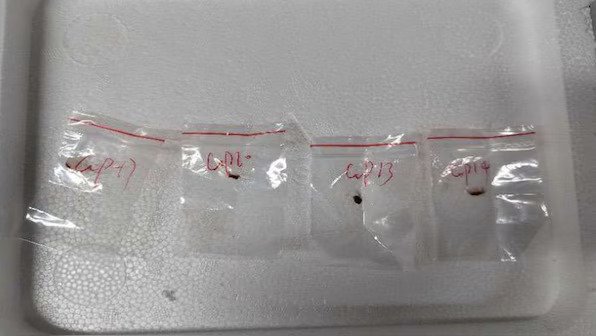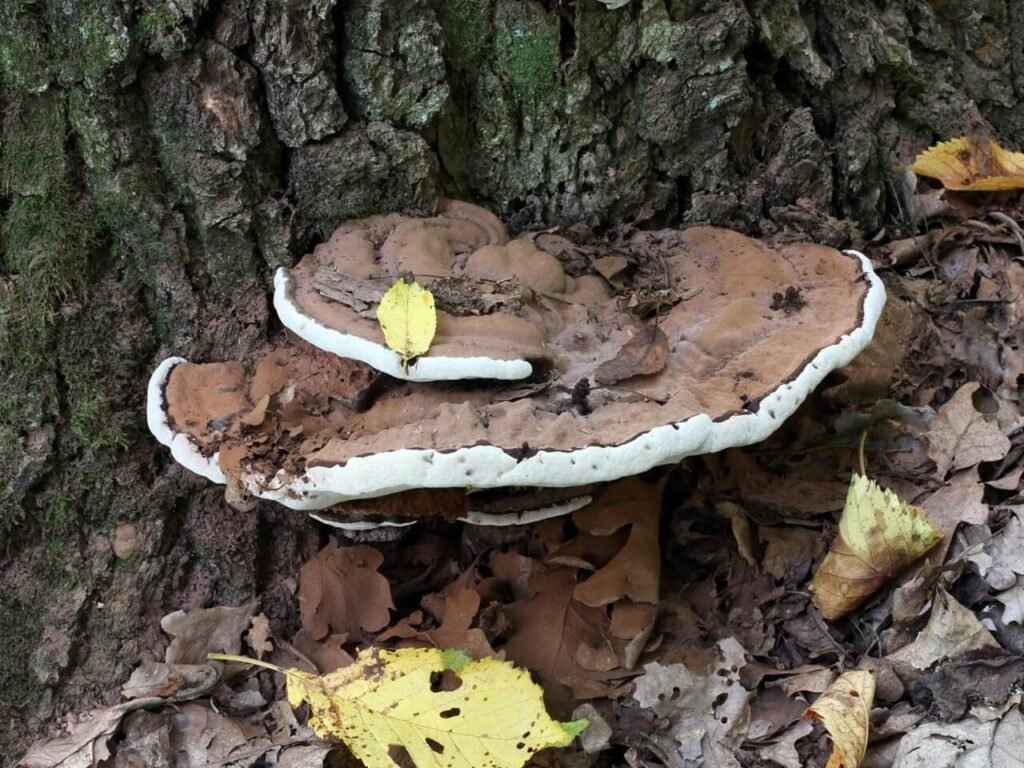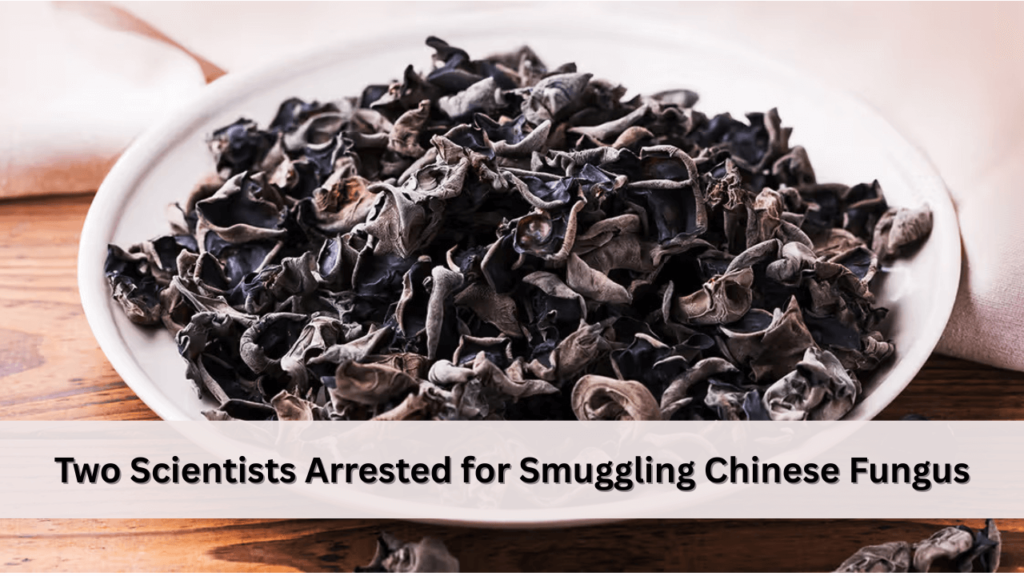Two Chinese nationals, Yunqing Jian and Zunyong Liu, were arrested at Los Angeles International Airport after being caught attempting to smuggle a dangerous agricultural pathogen Chinese fungus into the United States. According to official sources, the individuals were found in possession of a live sample of Fusarium graminearum, a fungus known to devastate essential crops like wheat, corn, and barley.
The incident has sparked significant concern among federal officials and the agricultural community. The Chinese fungus, which causes Fusarium head blight, is considered a major threat to global food security. The suspects arrived from China with the sample concealed in a mailed package, prompting immediate investigations into potential biosecurity violations and agroterrorism implications.
What Is Fusarium Graminearum and Why Is It Dangerous?
Fusarium graminearum is a fungal pathogen that infects cereal crops, especially wheat and barley. Its effects are severe: it reduces crop yields, damages grain quality, and produces mycotoxins like deoxynivalenol (DON), which can be harmful to both humans and livestock. These toxins can cause nausea, vomiting, and immune system suppression when consumed.

In China, where food security remains a vital concern due to population density and environmental factors, the fungus is already a known problem. However, its deliberate introduction into U.S. agriculture could have catastrophic consequences. Experts warn that the spread of such a pathogen could lead to billions of dollars in economic losses and severe disruptions in food supply chains.
Potential Agroterrorism Threat
The arrests have reignited discussions around biosecurity and the risks of agroterrorism. Federal investigators have not yet determined whether the smuggling attempt was an isolated act or part of a larger, coordinated effort. However, the U.S. Department of Homeland Security (DHS) and the Federal Bureau of Investigation (FBI) are treating the case with utmost seriousness.
A DHS spokesperson stated, “The deliberate transport of known agricultural pathogens across borders is not only a violation of international law but poses a direct threat to national security. This incident highlights the importance of stringent biosecurity protocols.”
FBI director Kash Patel claimed on X that China was “working around the clock to deploy operatives and researchers to infiltrate American institutions and target our food supply, which would have grave consequences”.
The Chinese scientists claimed during initial questioning that they were carrying the Chinese fungus for research purposes. However, they failed to produce the necessary permits, documentation, or declarations required for transporting regulated biological materials. Their conflicting statements have fueled suspicions of more sinister intentions.
Growing Biosecurity Concerns
In recent years, the global scientific community has been increasingly aware of the threats posed by both naturally occurring and human-facilitated biological hazards. The arrest of Jian and Liu adds to a growing list of biosecurity incidents that suggest more attention must be paid to potential weak links in international research collaboration and customs inspection processes.

Smuggling attempts involving biological agents are especially concerning because they can bypass traditional defense mechanisms. Agriculture remains a critical vulnerability in many nations due to its open-air exposure, vast geographical coverage, and dependence on consistent environmental conditions.
This incident has prompted calls for stricter inspections at ports of entry and improved surveillance of imports that could potentially harbor invasive or harmful organisms. Biosecurity experts are urging the government to expand investments in early detection systems and response readiness to counter potential biological threats before they escalate.
Response from the Agricultural Sector
U.S. farmers and agricultural associations have expressed alarm over the arrests. Many fear that even one successful release of Fusarium graminearum could compromise entire crop cycles. Given that the U.S. Midwest is one of the world’s largest wheat and corn-producing regions, a localized outbreak could have ripple effects across international markets.
The National Association of Wheat Growers (NAWG) issued a statement: “This fungus is not just a plant disease—it is a national concern. Our industry relies on clean fields and healthy crops. We urge federal authorities to act decisively to deter future biological smuggling attempts.”
Concerns are not limited to just crop damage. If mycotoxins enter the food processing chain, they could contaminate processed products like flour and cereal, endangering consumers and triggering widespread recalls.
Legal Proceedings and Diplomatic Tensions
Jian and Liu are currently being held without bail, pending further investigation. They face multiple federal charges, including illegal importation of biological agents, violation of plant protection laws, and conspiracy. If convicted, they could face significant prison time and hefty fines.
The case is also drawing international attention, with diplomatic tensions rising between the United States and China. While Chinese authorities have not issued an official statement, the situation could complicate existing strains in U.S.–China relations, particularly around technology sharing, academic collaboration, and national security.
This is not the first time biological smuggling has strained bilateral ties. However, this case is unique in its focus on agriculture—a domain often overshadowed by high-tech and military concerns but no less critical to national resilience.
A Wake-Up Call for the World
This high-profile arrest should serve as a wake-up call for governments, researchers, and policy-makers worldwide. As the line between civilian research and national security continues to blur, better oversight, transparency, and regulatory frameworks are necessary to prevent the misuse of scientific knowledge.
The threat posed by Fusarium graminearum—and the smuggling of such organisms—cannot be underestimated. This incident reminds us that in the modern age, security does not only lie in missiles and machines but in soil, seeds, and science. The keyword Chinese scientists arrested for smuggling crop-destroying Chinese fungus into U.S. has now become emblematic of a broader, urgent conversation.
As the legal process unfolds, officials and citizens alike will be watching closely to see how this case shapes future international biosecurity policies. More importantly, it will test the resolve of nations to prioritize agricultural defense in the face of growing global risks.
Amid rising global trade and the exchange of scientific materials, secure digital systems are critical. If you’re wondering what is a B2B portal and how it supports safe and legal commercial exchanges between businesses, it’s worth exploring to understand the risks of bypassing proper channels.


